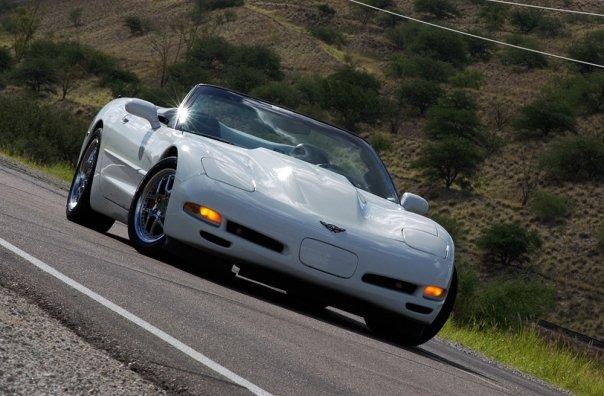Early retirement isn't just about the sacrifice

Aside from the money aspect, one of the biggest drawbacks to early retirement for a lot of people is the thought of changing their lifestyle in profound ways in order to achieve it.
For example, it doesn't take long reading blogs in the personal finance space before we stumble on advice that sounds something like this:
- stop going out to eat
- quit buying coffee at coffee shops
- bike to work, even in the freezing cold or pouring rain
- spend hours clipping coupons and only buy stuff that's on sale
- yada, yada yada
On their face, a lot of these tips are financially sound. I mean, cooking at home instead of going out to eat will save you money. I mean, it just will.
But, cooking at home isn't always fun for a lot of us. And, it may not be the best use of our time - especially at the end of stressful days.
I'm a huge restaurant person.
I love going out to eat because it's generally a fun and inviting atmosphere. You're around people who are happy and having a good time.
And, of course, there's no cleanup.
But damnit, we should be able to go out to eat once in a while if it's important to us. Or drive a car (or even a truck!) to work instead of bike. Or grab a morning latte if that's what legitimately makes us happy.
Too often, we talk about the sacrifice of early retirement, but that's also not the whole story, and for many people out there, it's probably turning them off to the entire idea of quitting the rat race early. It just seems too difficult.

The very first step to early retirement
Early retirement and financial independence should not focus on the things that you need to stop doing. Like, restaurants, driving and, well, spending.
Instead, change the focus and think of early retirement as understanding the impact of the money that we are spending. Once we understand that impact, we're in a much better position to make decisions that are in our best interest. Decisions that maintain our happiness, but also help us to accomplish our money-related goals.
Let's assume that early retirement is your goal.
You, like me, find no real satisfaction in working a full-time job. Instead of working another 30 years in corporate America, you want out.
Okay, cool - that's been established. What's the next step?
It's not putting a stop to your lattes or drastically altering your lifestyle. Back the truck up.
Just like in business, you don't buy a new business and immediately start changing shit up and shifting things around. I'm a firm believer in going gung-ho in those things that you believe in, but we also need to understand what we're doing, first.
Instead, it is generally much wiser to settle in first and observe how things are running now. Watch how the business operates. Take note of the things that could be improved. Then, slowly over time, begin picking away at those improvements until you've transformed the organization into something that's in line with your mission.
Early retirement isn't a full stop when it comes to spending.
The first step is to decide what makes you happy. I mean truly "let's delay early retirement a couple of months" sort of happy. Things that you'd rather spend money on NOW even if that means you're pushing early retirement off a bit.
Early retirement is about understanding happiness
As I said before, I love going out to eat. Genuinely love it. Every minute of it. And, that was something that I refused to give up when we decided to retire early.
For you, it might be your season tickets. Or upgrading your wardrobe on the regular. Getting the newest cell phone every damn year. Whatever it is for you, happiness should NOT be sacrificed in order to achieve early retirement.
But, here's the thing. You need to answer two questions during this process:
- Do the things that make you happy REALLY make you happy? When I was younger, I drove around in a supercharged Corvette and also rode a Yamaha R1 sportbike. I thought they made me happy. And in certain situations, they did. But fundamentally, I finally admitted to myself that they provided no genuine source of happiness in my life, and I spent way too much money on that mistake before I realized it. The things that you think are making you happy...are they? Really?

- Are those things worth pushing back early retirement? Is spending money on the things that provide genuine happiness worth delaying early retirement in order to fund? If those things make you happy enough, it's okay if the answer is yes.
The truth is, if the answer to the above question is yes, then it's okay that your lifestyle isn't some perfectly streamlined, well-oiled machine that cranks out impeccable little specimens every step of the way.
Here's the key:
Optimize your spending to the point where happiness isn't sacrificed.
Then, you've probably found the right balance for you.
Understand the things that make you happy. Then, tell yourself that it's okay to spend money on those things because they make you happy.
Here's the script to tell yourself:
I realize that if I reduce spending on certain things, I could probably retire earlier. But, it's not worth it. Those things provide enough happiness in my life that I'm willing to continue spending on those things.
That's it. Once we understand the source of our happiness, our spending begins to shift in a meaningful way...in a way that doesn't feel like "sacrifice", but still puts the wheels in motion to achieve our goals of early retirement.